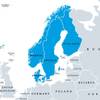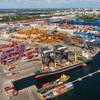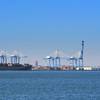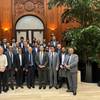The world’s first National Technical Reference for Bunker Mass Flow Metering (TR48 : 2015) was launched in support of the Maritime and Port Authority of Singapore (MPA)’s and industry’s initiative to use the mass flow metering (MFM) system for marine fuel oil deliveries in Singapore with effect from January 1, 2017. MPA said the TR sets out clear requirements for measurement and system integrity that provides a fair basis for custody transfer between the bunker supplier and bunker buyer in Singapore.
Bunkering in Singapore has grown tremendously since standardized bunker delivery procedures were adopted in the early 1990s. MPA has reported record bunker sales volume of 45.16 million metric tons in 2015, making Singapore the world's largest bunkering port. This TR is crucial for the support of the further growth of Singapore’s bunkering industry, MPA said.
The adoption of the mass flow metering system for bunkering at the Port of Singapore, commencing with the first MFM system approved under this project in 2012, will provide both the bunker buyers and suppliers with better assurance of the quantity of bunker delivered.
The adoption of the MFM system for bunkering at the Port of Singapore, commencing with the first MFM system approved under this project in 2012, will provide both the bunker buyers and suppliers with better assurance of the quantity of bunker delivered.
“The mass flow metering system has a number of key benefits; most importantly transparency, efficiency and security. It can also help marine vessel operators save up to an estimated three hours [1] and $5,000 [2] per refueling. Looking ahead, we will continue to invest in innovation that can help to set new standards of transparency and reliability for fuel measurement, throughout each stage of the supply chain,” said Wong Suan, Regional Sales Manager of ExxonMobil Asia Pacific Pte Ltd.
"Eighty percent of Pacific International Lines’ total bunker consumption comes from Singapore. The use of mass flow meters has enabled us to shorten the time for receiving bunkers at Singapore, and as a result, improve our vessels' service efficiency," said Teo Choo Wee, Executive Director of Pacific International Lines (Pte) Ltd.
TR48 has been developed under the auspices of the Technical Committee for Bunkering of the Chemical Standards Committee (CSC). The CSC is one of the 12 Standards Committees of the industry-led Singapore Standards Council set up by SPRING Singapore, the national standards body. Driving growth and productivity are two of the key priority areas for standardization work in Singapore.
“The Technical Committee for Bunkering pioneered TR 48, a new bunker fuel measurement standard, for the benefit of the bunkering industry in Singapore. This TR ushers bunker fuel measurement into the digital age and will help Singapore’s efforts to maintain its position as the world’s top bunkering port in terms of tonnage,” said Seah Khen Hee, Chairman, Technical Committee for Bunkering.
The multi-stakeholder Working Group appointed by the Technical Committee for Bunkering comprising SPRING, MPA, A*STAR and stakeholders from the marine, shipping and oil and gas industry completed this standard after extensive consultation with various stakeholders which included the MPA-coordinated trials. These initial trials had the benefit of key technical advice from both the Technical Committee and Working Group. The trials used mass flow meters that were verified and sealed by SPRING and the trials data were analyzed by A*STAR’s National Metrology Centre (NMC) to determine the performance of the MFM system.
[1] Comparison versus manual tank sounding.
[2] Per 1,000MT stem size delivery at $300/MT. Includes surveyor costs, temperature delivery range and density delivery range but does not include dip tank measurement errors. A temperature measurement delta of 10°C amounts for up to $2,100. A 3kg/m³ density difference amounts for up to $1,000. These variables can be avoided by the use of a secure mass flow metering system therefore negating the need of a quantity surveyor with an estimated cost of up to $2,000.












